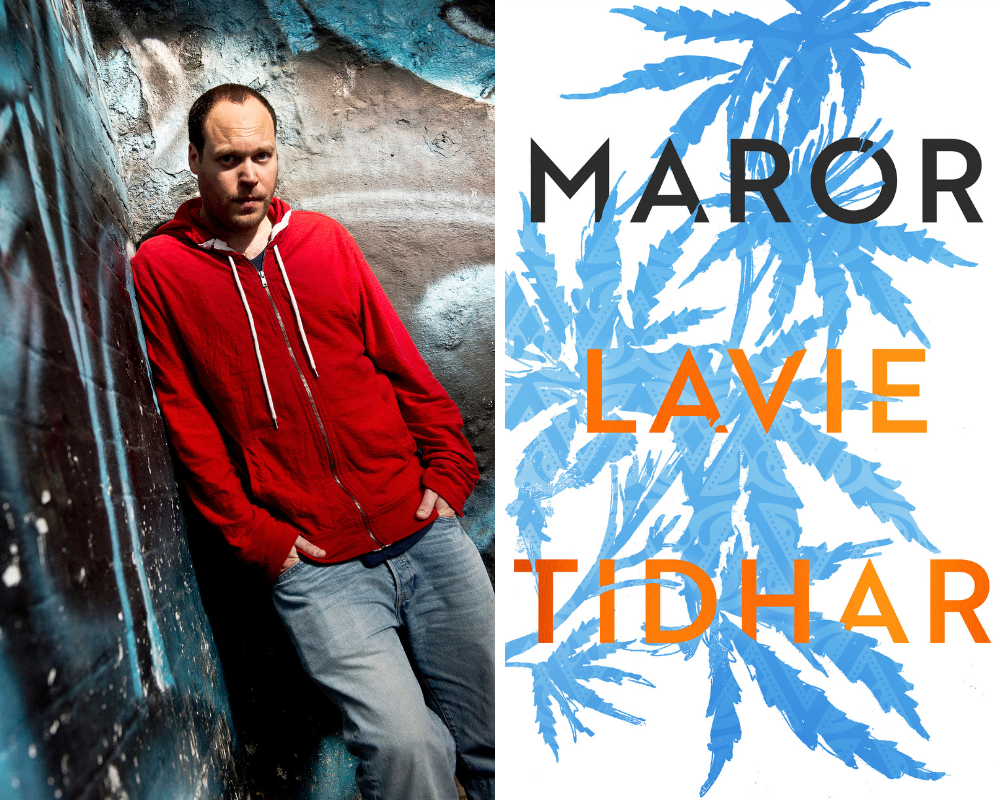Lavie Tidhar on becoming a historical detective

My new novel, Maror, is entirely based on real historical events from the dark underbelly of Israeli society – though many of them would seem almost fantastical. When I set out to write it I only had three points of reference for my journey: a car bomb attack in the early 2000s; a series of unsolved murders of young women throughout the 1970s; and a doomed rock concert in the desert in the 1990s. In between, I had four decades left to explore, not even knowing how it all connected or what shape it would take.
I was lucky, though. My cousin, a criminal lawyer who once represented one of the mob bosses featured in this book, put me in touch with a retired crime beat reporter. The reporter agreed to act as my guide through the secret history of Israel, sharing his first-hand knowledge of the mob, the drug trade, the wars, crooked generals and politicians. He would point me in one direction. I would then delve deep into historical newspaper archives, tracking forgotten murder investigations, finding clues and hints in cryptic references to suppressed stories until a picture began to emerge.
I became, in effect, a historical detective.
One of the characters I track through the book is a man I called “Genghis”. He was a decorated general and a long-serving politician. He was also, from testimonies that emerged after his death, a serial rapist, a murderer and intimately connected with organised crime figures. I watched interviews with 1970s mob bosses; with rape victims who provided harrowing testimony; with a friend of the general (himself a senior security figure) recounting, in one instance, how Genghis shot two men in cold blood.
The question for me, though, began almost idly. I was tracking Genghis’ activity through the newspapers. I knew where he was at nearly every juncture. From the army to a political career, the path was clear.
But there was a gap.
Where was Genghis between 1977 and 1981? He had left a government post and was not appointed to his next public role until four years later. This absence fascinated me. I began to trawl the archives. He popped up in South America, possibly involved in an arms deal. Then in South Africa. He was embroiled in controversy over his connections to organised crime during that time, too, and engaged in a public feud with a young anti-corruption politician. The same young politician would later become prime minister, only to end up in prison for corruption. Ironies abound.
But what was Genghis actually doing?
I began to find hints. The name of a construction magnate accused of being a mob boss was linked to Israel’s first police commissioner, now retired, and to the commissioner’s new business partner, a convicted forger and conman. Those three all linked to my general.
But what was the former police commissioner doing in business with a convicted criminal? And how was it all tied to my general and the mob?
It all seemed to revolve around some sort of shady land deal in the newly-occupied Palestinian territories in the West Bank – the same territories my general was once responsible for as their military governor.
A prominent magazine attempted to cover the story, I discovered. My general and his associates paid the publisher a visit and told him “you won’t breathe in this country” if the story was published – giving me the title for this section of the book.
The story was pulled.
It lay buried for over forty years.
Now it’s finally been told. I fictionalised it, and the names have been changed. But I have the receipts.
Since that time, land deals in the territories occupied by Israel have become worthy of a spy novel in themselves, conducted in clandestine fashion, utilising shell companies and dark money, and operating under threat of violence and death. What I wrote merely shines a light (I hope) on the way it started: on an unholy intersection of greed and power where injustice can flourish.
As for Genghis? He has streets, bridges, highways and promenades named after him to this day, and a law passed by government to commemorate his heritage.
And in writing this, I think, I had at least followed the letter of that law.
Maror by Lavie Tidhar, published by Apollo Fiction [an imprint of Head of Zeus] is out on the 4 August 2022 in hardback, RRP £20


